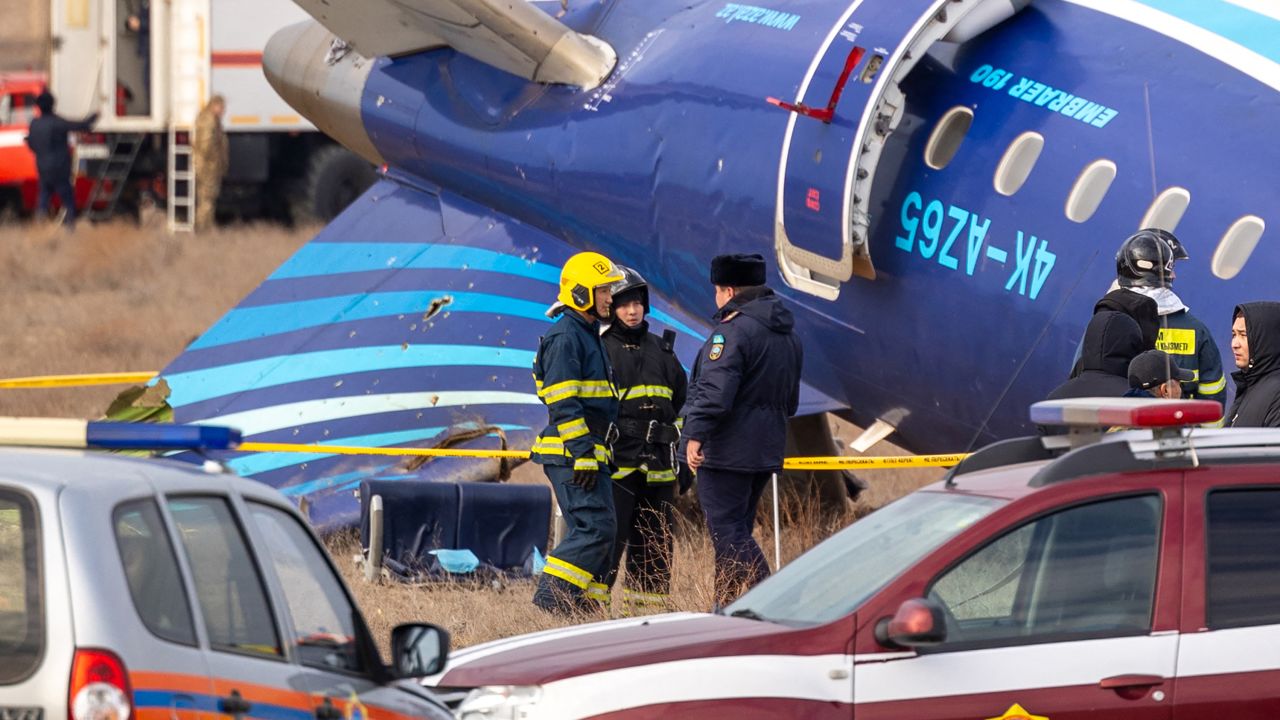
How Kremlin disinformation could hide the cause of the Azerbaijan Airlines crash
SMM ALIPAYUS Dec 27, 2024 World
The cause of the crash of Azerbaijan Airlines flight J2-8243 on Christmas Day near the city of Aktau, Kazakhstan, is still unknown. As of Friday, flight recorders have been recovered from the scene and the investigation continues.
But early indications may point to a possible cause: A US official told CNN a Russian anti-aircraft system may have downed the passenger jet. And that version of events – first floated by unnamed sources in Azerbaijan, then openly by an Azerbaijani lawmaker, Rasim Musabeyov – appears to be gaining traction, at least in international media.
The official picture in Russia is somewhat different. At midday Friday, the lead news item on the tragedy on Russian state television channel Rossiya-24 noted that representatives of the aircraft manufacturer Embraer were expected to arrive in Kazakhstan, but made no mention of the possibility that the aircraft had been shot down. And Kremlin spokesperson Dmitry Peskov has been tight-lipped about the disaster, in which at least 38 people died.
Asked in a conference call with reporters Friday to comment on the calls by Musabeyov for a Russian apology, Peskov said: “This aviation incident is under investigation and until the conclusions are made as a result of the investigation, we do not consider ourselves entitled to give any assessments and will not do so.
Related article Azerbaijan Airlines says plane crashed after ‘external interference’ as questions mount over possible Russian involvement
“At the same time, we have our aviation authorities who can do this and information can only come from them. We do not consider ourselves entitled to comment on this.”
Peskov’s messaging may set the tone for Russian media, but apparent evidence of a shoot-down – video footage shows perforations in the plane’s body that look similar to damage from shrapnel or debris – presents a public-relations dilemma for the Kremlin. According to preliminary data, citizens of Russia, Azerbaijan, Kazakhstan and Kyrgyzstan were on board; several international carriers have now suspended flights to Russian cities.
The original destination of the aircraft – the Russian republic of Chechnya, run by loyal, pro-Kremlin warlord Ramzan Kadyrov – makes the situation even more delicate for the Russian government.
In a thread on X, Russian political observer Alexander Baunov noted the vague initial Russian coverage of the crash and wondered if the Kremlin would eventually take responsibility, or not.
“Will Moscow obfuscate, deny, throw out conflicting narratives, and coerce Azerbaijan and Kazakhstan into a shared lie, leveraging its military, economic and diplomatic might?” he asked, suggesting the incident showed “shades of how Malaysia Airlines Flight MH17 was handled.”
For those who may not recall, the downing of the MH17 in 2014 over Ukraine by a Russian surface-to-air missile became a master class in Russian spin and disinformation.
The crash, which claimed the lives of 298 people, was followed by a blizzard of false and misleading information from Russia. The accounts that circulated in Russian media were confusing, contradictory and sometimes downright bizarre: The Ukrainians shot the plane down; Russian President Vladimir Putin’s plane was the actual target; or even that the plane had been packed with corpses.
Related article ‘Strong indications’ Putin decided to give separatists the missile that downed MH17 in 2014, say Dutch investigators
But the effect was the same, regardless of the story. The disinformation around MH17 created confusion, distraction and noise that diverted some attention away from the real cause, a Russian missile.
A Dutch court eventually concluded that MH17 was shot down by a Russian Buk surface-to-air missile launched from territory held by pro-Russian separatists under the control of Moscow, and two Russians and a separatist Ukrainian were found guilty in absentia of mass murder for their involvement.
That verdict took years to reach, and the investigation into the crash of the Azerbaijan Airlines flight has only just begun. It remains to be seen if that investigation, too, will be obscured by the fog of disinformation.




